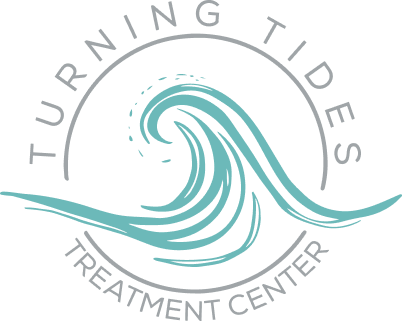Narcissistic Personality Disorder
Narcissistic Personality Disorder (NPD) is a personality disorder that is characterized by a pattern of grandiosity, a lack of empathy, and a need for admiration. Individuals with NPD often have an exaggerated sense of their own importance and abilities and believe that they are entitled to special treatment. NPD affects approximately 1% of the population, and it can have a significant impact on individuals and their relationships.
Understanding Narcissistic Personality Disorder
Definition and Overview
According to the Diagnostic and Statistical Manual of Mental Disorders, Fifth Edition (DSM-5), NPD is diagnosed when an individual has a pervasive pattern of grandiosity, need for admiration, and lack of empathy that starts in adolescence or early adulthood. The individual must exhibit at least five of the following symptoms:
- A grandiose sense of self-importance
- Fantasies of unlimited success, power, brilliance, beauty, or ideal love
- A belief that they are special or unique and can only be understood by other high-status people or institutions
- A need for excessive admiration
- A sense of entitlement
- Interpersonally exploitative behavior
- A lack of empathy
- Envy of others or a belief that others are envious of them
- Arrogant or haughty behaviors or attitudes
Individuals with NPD often have difficulty accepting criticism and may react with anger or feelings of shame. They may also exaggerate their accomplishments or talents and expect others to recognize and admire them.
It is important to note that while many people may exhibit some of these traits from time to time, a diagnosis of NPD requires that the individual exhibits a pervasive pattern of these behaviors that significantly impairs their functioning in various areas of their life, such as work, school, or relationships.
Prevalence and Demographics
NPD affects approximately 1% of the general population, and males are more likely to be diagnosed than females. NPD is also more prevalent among individuals who are divorced or separated and among those who have a higher socioeconomic status.
While the exact causes of NPD are not fully understood, it is believed to be a combination of genetic, environmental, and psychological factors. Some research suggests that a history of childhood abuse or neglect may increase the risk of developing NPD, while others point to a lack of empathy and emotional regulation skills as contributing factors.
The Narcissistic Personality Inventory (NPI)
The Narcissistic Personality Inventory (NPI) is a widely used self-report measure of narcissism. The NPI contains 40 items that assess various aspects of narcissism, including grandiosity, entitlement, exhibitionism, and exploitativeness. Scores on the NPI are positively correlated with measures of self-esteem and negatively correlated with measures of empathy.
It is important to note that while the NPI can be a useful tool in assessing narcissistic traits, it should not be used as a diagnostic tool for NPD. A diagnosis of NPD requires a thorough evaluation by a qualified mental health professional.
Treatment for NPD typically involves psychotherapy, such as cognitive-behavioral therapy or psychodynamic therapy, which can help individuals with NPD develop more adaptive ways of thinking and behaving. Medication may also be used to treat co-occurring mental health conditions, such as depression or anxiety.
Overall, while NPD can be a challenging condition to live with, with proper treatment and support, individuals with NPD can learn to manage their symptoms and improve their functioning in various areas of their life.
The Relationship Between NPD and Substance Abuse
There’s a special connection between NPD and substance abuse, often complicating the treatment process.
Why People with Narcissistic Personality Disorder are Prone to Substance Abuse
Individuals with NPD may resort to substance abuse to self-medicate or to maintain their grandiose self-image. Substance use can provide temporary relief from their emotional pain and emptiness, but it also intensifies the issues associated with NPD.
The Impact of Substance Abuse on Narcissistic Personality Disorder
Substance abuse can amplify the symptoms of NPD, worsening the individual’s mental health and making the path to recovery more challenging. Understanding this link is crucial in providing effective treatment.
Causes and Risk Factors
Narcissistic Personality Disorder (NPD) is a mental health condition that affects approximately 1% of the general population. It is characterized by a pervasive pattern of grandiosity, a need for admiration, and a lack of empathy. While the exact causes of NPD are not fully understood, research has identified several factors that may contribute to the development of this disorder.
Studies have shown that genetic factors may play a role in the development of NPD. Research suggests that NPD tends to run in families, and genetic factors may account for up to 64% of the variance in NPD traits. However, it is important to note that having a genetic predisposition to NPD does not necessarily mean that an individual will develop the disorder. Environmental factors also play a significant role.
Our dedicated team of professionals includes psychiatrists, therapists, and addiction specialists, all working together to create a supportive and nurturing environment for recovery.
Environmental factors may also contribute to the development of NPD. For example, individuals who are raised in families that place a high value on success, achievement, and competition may be more likely to develop NPD traits. Additionally, individuals who are exposed to trauma or abuse may be more likely to develop NPD as a way of coping with the psychological effects of these experiences. Furthermore, research has shown that individuals who grow up in an environment where they are excessively praised and receive little criticism may develop an inflated sense of self-importance, which is a hallmark trait of NPD.
Childhood experiences may also contribute to the development of NPD. For example, individuals who were raised in families that overindulged them or placed unrealistic demands on them may develop a sense of entitlement and a need for admiration. This may lead to an exaggerated sense of self-importance and a lack of empathy for others. Additionally, individuals who were neglected or rejected as children may develop a sense of grandiosity as a defense mechanism. This may help them to cope with feelings of inadequacy and low self-esteem.
In conclusion, while the exact causes of NPD are not fully understood, research has identified several factors that may contribute to the development of this disorder. Genetic factors, environmental factors, and childhood experiences all play a role in shaping an individual's personality and may contribute to the development of NPD. It is important to seek professional help if you or someone you know is struggling with NPD or any other mental health condition.
Symptoms and Diagnostic Criteria
Narcissistic Personality Disorder (NPD) is a mental health condition that affects a person’s ability to form and maintain healthy relationships with others. It is characterized by a pervasive pattern of grandiosity, a need for admiration, and a lack of empathy for others.
The DSM-5 Criteria for NPD
The DSM-5 criteria for NPD require that an individual exhibit at least five of the nine symptoms listed above. These symptoms must be pervasive and must have been present since adolescence or early adulthood. In addition, the symptoms must cause significant impairment in the individual’s social, occupational, or personal functioning.
Some of the symptoms of NPD include a grandiose sense of self-importance, a preoccupation with fantasies of unlimited success, power, brilliance, beauty, or ideal love, a belief that they are special and unique, a need for excessive admiration, a sense of entitlement, exploitation of others, lack of empathy, envy of others, and arrogant or haughty behaviors or attitudes.
It is important to note that not all individuals with NPD will exhibit all of these symptoms, and that the severity of symptoms can vary from person to person.
Common Symptoms and Behaviors
Individuals with NPD often exhibit a range of symptoms and behavior patterns that can be challenging for others to deal with. For example, they may have difficulty regulating their emotions and may be prone to emotional outbursts or temper tantrums. They may also have a tendency to manipulate others to get their way, and may have a sense of entitlement that can lead to conflicts with others.
Additionally, individuals with NPD may struggle with criticism or rejection and may become angry or defensive when their behavior is questioned. They may also have difficulty forming and maintaining intimate relationships, as they may struggle to empathize with others or to see things from their perspective.
Despite these challenges, it is important to note that individuals with NPD are not inherently “bad” people. Many people with NPD are able to lead successful and fulfilling lives, and may benefit from therapy or other forms of treatment to help them manage their symptoms.
Co-occurring Disorders
Individuals with NPD may also have co-occurring mental health conditions, such as depression, anxiety, or substance abuse. These conditions may exacerbate the symptoms of NPD and make it harder for individuals to manage their symptoms and engage in treatment.
It is important for individuals with NPD to seek out professional help if they are struggling with their symptoms. Therapy, medication, and other forms of treatment can be effective in helping individuals with NPD manage their symptoms and lead fulfilling lives.

The Impact of NPD on Relationships
Interpersonal Challenges
Individuals with Narcissistic Personality Disorder (NPD) often face significant challenges in their relationships with others due to their excessive need for admiration and lack of empathy. While they may appear confident and charismatic on the surface, their underlying insecurities and self-centeredness can make it difficult for them to form close, meaningful relationships.
Family members, romantic partners, and coworkers of individuals with NPD may struggle to connect with them on an emotional level. They may feel that their needs and desires are constantly being overlooked in favor of the NPD individual’s own desires and the need for attention. This can lead to feelings of mistrust and resentment, as well as a sense of being used or taken advantage of.
Emotional Abuse and Manipulation
In addition to struggling with interpersonal relationships, individuals with NPD may also engage in emotional abuse and manipulation in their relationships. They may use tactics such as gaslighting, belittling, or other forms of emotional manipulation to control their partners or family members.
Gaslighting, in particular, can be a particularly insidious form of emotional abuse. It involves manipulating someone into doubting their own perceptions and memories, often by denying facts or events that they know to be true. This can lead to feelings of confusion, self-doubt, and even a sense of losing touch with reality.
The Role of Empathy
One of the key challenges in treating NPD is helping individuals to develop empathy and understand the impact of their behavior on others. Without this ability, individuals with NPD may struggle to form healthy relationships and may continue to engage in manipulative or abusive behaviors.
Therapy can be an effective tool in helping individuals with NPD to develop empathy and social skills. Cognitive-behavioral techniques, such as role-playing and social skills training, can help individuals learn to recognize and respond to the emotional needs of others. Psychotherapy can also help individuals explore the underlying causes of their NPD, such as childhood trauma or low self-esteem.
Get Help at Turning Tides
If you or a loved one is struggling with NPD and substance abuse, it’s crucial to seek professional help. Turning Tides Premier Drug & Alcohol Rehab Center offers comprehensive, evidence-based treatment that can help you regain control of your life and achieve lasting recovery.
Overall, NPD is a complex and challenging mental health condition that can have a profound impact on individuals and their relationships. However, with the right treatment and support, individuals with NPD can learn to manage their symptoms and develop healthier relationships with others.
At Turning Tides Rehab Center, our mission is to provide compassionate, evidence-based care to individuals with NPD and substance use disorders. Our customized treatment plans, experienced team, and supportive environment create the foundation for lasting recovery and improved mental health. Don’t wait to start your journey toward healing; reach out to us today.

